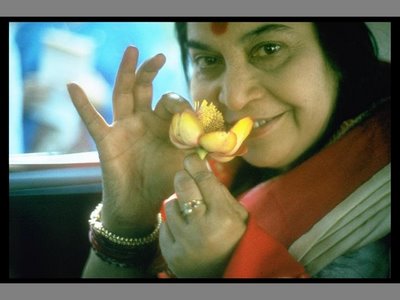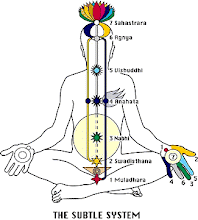The Sacrum bone

Enlightenment (Self Realisation) might be obtained through the awakening of the subtle spiritual energy called the Kundalini lying dormant (latent) in the sacrum bone (Mooladhara sacrum) placed close to the bottom of the spine.
The problem of the sacrum bone is worth, here, a short analysis. The anatomical name coming from hierónostoún (holy bone' Gr.) was used in the time of Hippocrates (about 400 BC) and was translated by the Romans through sacrum (sacred' Lat.). Halyah (chain link or vertebra' Hebr.) has the Name of God Yah (Short form of Yahweh) as its root. Why this bone had been called a "holy bone" had been a mystery for centuries. Some thought that the bone was used in the sacrificial rituals, others, that it played a role in the protection of the genitals (considered to be sacred in themselves), or that the Last Judgment would require this bone to be intact as a receptacle of resurrection.
The ancient world believed that the sacrum was the last bone subject to decay after death (conviction found in a Jewish folk story) [1]. This idea is also found with the Muslims, being mentioned in a Hadith: "Narrated Abu Huraira: The Prophet said:" Everything of a human body will waste away' perish or decay except the last coccyx bone (Al-ajb, Arab.) and from that bone Allah will reconstruct the whole body" [2]. Thus, no one should be surprised at the Yogis considering the Kundalini awakening as tantamount of resurrection. Etzem (bone; essence' Hebr.; tz' vertebra' Egypt.) has etz (tree' Hebr.) for its root' a reason for which it was asserted that the sacrum (atz' Hebr.) is the tree (of life, we should add; ch. IV) in its seed form [3]. The double significance of the word etzem, in our opinion, makes possible the correct interpretation of Adam's sentence about the Feminine Principle (Eve):"This time it is bone of my bones... this shall be called Woman" (Genesis 2:23)' a sentence that becomes:" she who is essence of my bones" (the feminine energy Kundalini being the sacred essence of the respective bone).
The Mooladhara was shown to be controlled by Ganesha' the Divine Son depicted with an elephant head by the Indian iconography. Indeed, any anatomy book provides the image of an elephant head for the group made up of the sacrum bone (elephant's triangular face) having on both sides the iliac bones (as its ears) and the coccyx (as its curved trunk) at the bottom. Likewise, the graphic sign of the holy syllable AUM (that is also close related to Ganesha) depicts the elephant head seen from the profile: the ears on the left and the trunk on the right.
References: [1] Oscar Sugar, Journal of the American Medical Association 257, pp.2061-2063 (1982). [2] Sahih Al-Bukhari, vol.6, Hadith 338. [3] Annick de Souzenelle, Le symbolisme du corps humain, Albin Michel, Paris 1991, ch. XII.


<< Home